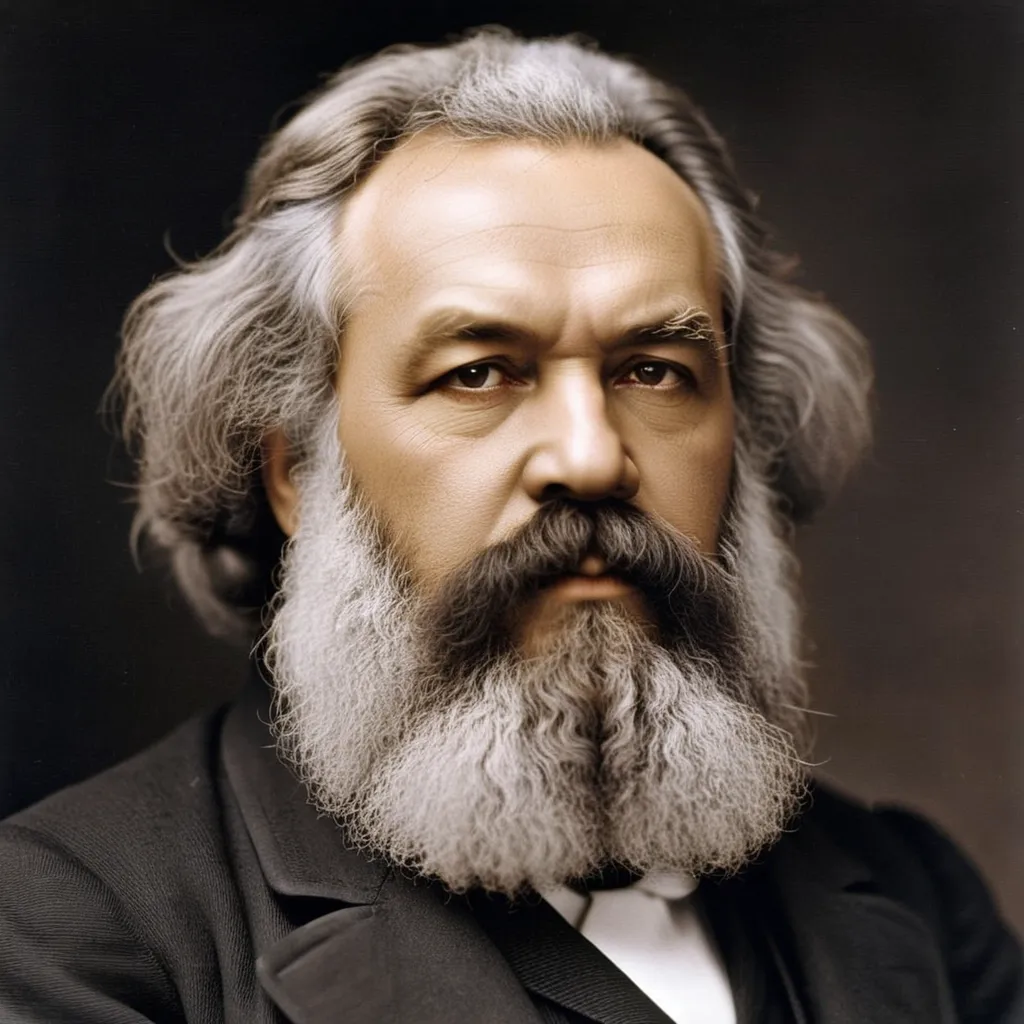Karl Marx: The Philosopher Who Changed the World
In the tapestry of intellectual history, few figures have woven threads as impactful as Karl Marx. The German philosopher, economist, and political theorist left an indelible mark with his ideas that continue to shape discussions on politics, economics, and society. Let's explore the profound influence of Karl Marx and his enduring legacy.

The Early Years
A Young Idealist
Karl Marx was born in 1818 in Trier, Prussia, into a middle-class family. Growing up in an intellectually stimulating environment, Marx's early years were marked by a voracious appetite for literature, philosophy, and a keen interest in societal issues.
Personal anecdote time: Studying Marx's early life during my philosophy classes, I found a connection to his intellectual curiosity. His journey from a young idealist to a revolutionary thinker made me ponder the power of ideas in shaping destinies.
The Communist Manifesto
Collaboration with Friedrich Engels
In 1848, Marx, along with his collaborator Friedrich Engels, penned the "Communist Manifesto," a seminal work that would become a cornerstone of Marxist thought. The manifesto called for the overthrow of capitalist societies and the establishment of a classless, communist order.
Here's a thought: Reading the Communist Manifesto for the first time, I was struck by the fervor with which Marx and Engels articulated their vision. It was a call to arms, challenging the existing structures of power and proposing a radical reorganization of society.
Das Kapital
A Monumental Economic Critique
Marx's magnum opus, "Das Kapital," published in three volumes, is an exhaustive analysis of the capitalist system. In it, Marx delves into the dynamics of labor, commodities, and capital, offering a critique of the exploitative nature of capitalism.
Personal insight: Wrestling through the complex ideas in Das Kapital, I gained an appreciation for Marx's depth of analysis. His work wasn't just a condemnation of capitalism; it was an intricate examination that forced me to question economic structures.
Class Struggle and Historical Materialism
Foundation of Marxist Theory
Marx's theories revolve around class struggle and historical materialism. He argued that societal progress is propelled by the conflict between different economic classes and that history is shaped by the material conditions of each era.
Food for thought: Reflecting on Marx's theories, I realized that while the specifics of his predictions may not have played out exactly as he envisioned, the overarching themes of class struggle and historical materialism still offer profound insights into societal dynamics.
Marxism in Practice
Impact on Politics
Marx's ideas did not remain confined to academic discourse; they ignited political movements. The term Marxism became synonymous with political ideologies and movements advocating for social and economic equality.
Closing reflection: Considering Marx's impact on politics, I thought about how ideas, once unleashed, can transcend the pages of philosophy and shape the course of nations. Marx's influence, for better or worse, is undeniably woven into the fabric of political history.
Karl Marx, with his revolutionary ideas, has left an indelible imprint on the intellectual landscape. While his theories have been interpreted, debated, and sometimes misappropriated, there's no denying the profound impact he has had on how we understand and critique the structures of power. As we navigate the complexities of modern society, Marx's legacy reminds us of the enduring power of philosophical thought to shape the world.<

No comments:
Post a Comment